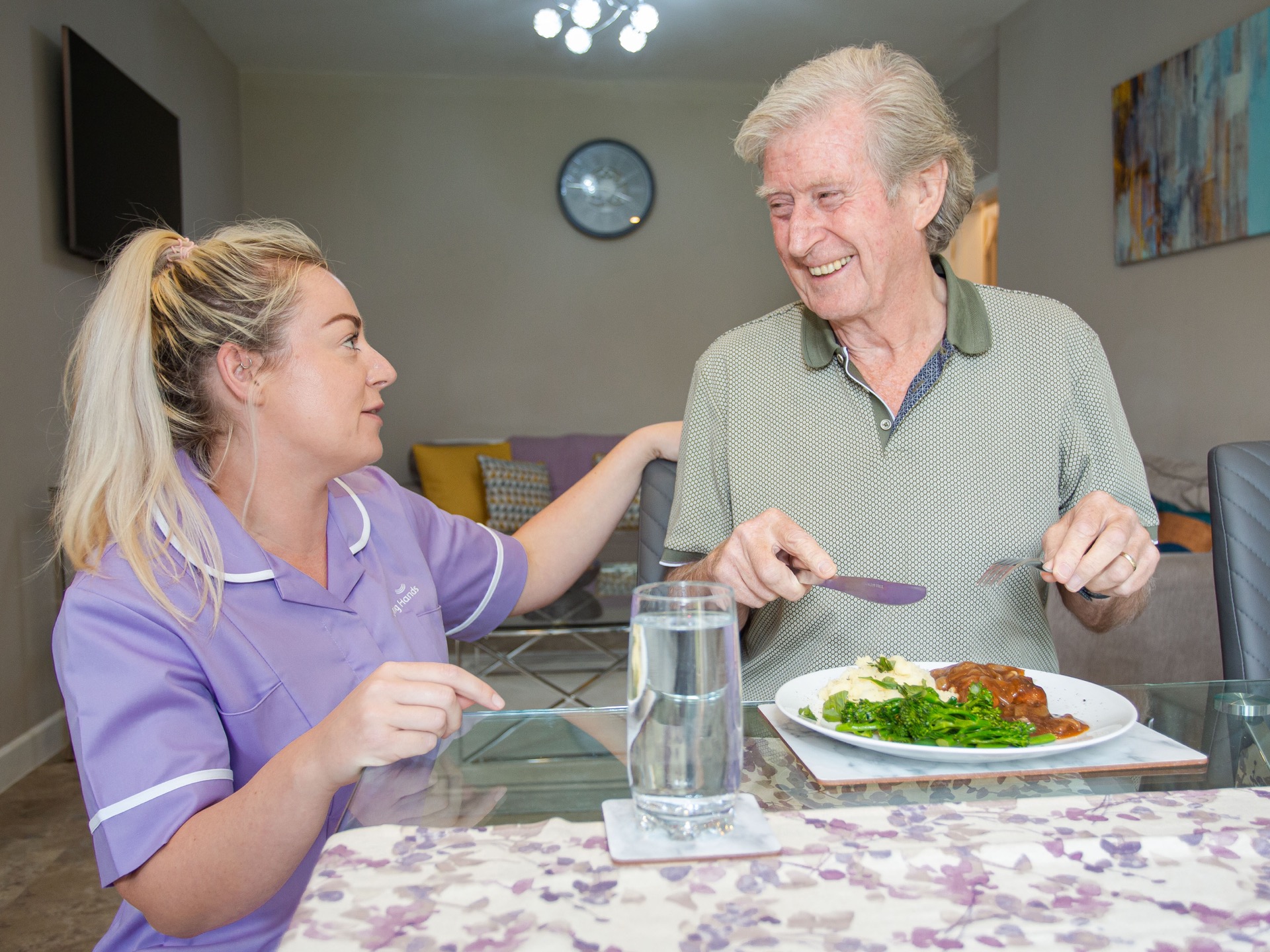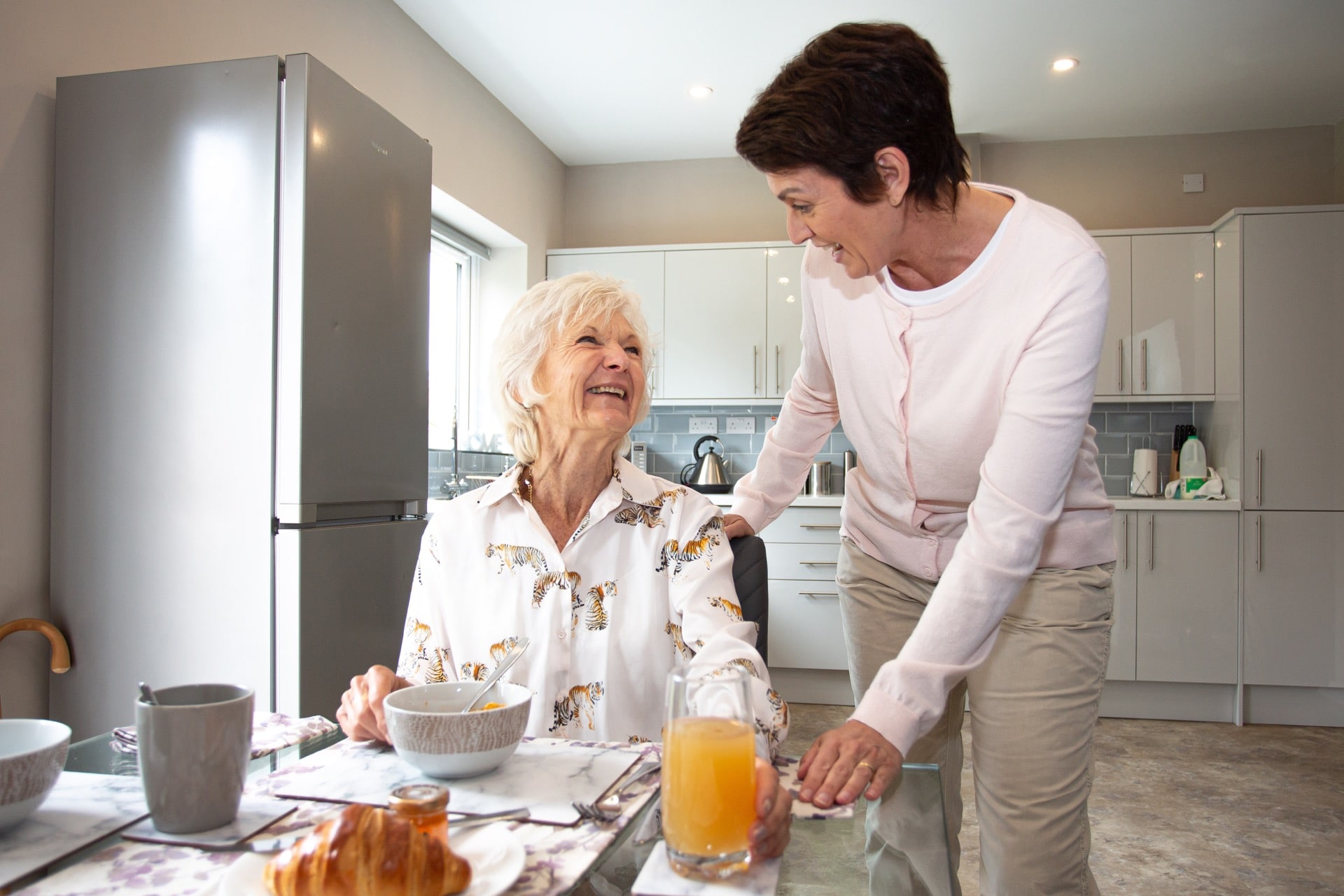Why do the elderly lose weight?

Is weight loss normal in elderly people?
The NHS states, “Unintentional loss is when you lose weight without changing your diet or exercise routine.”
With age, it is normal to see a slight decrease in body weight; however according to WebMD, after the age of 65, “Unintentional weight loss can be dangerous if you lose 5% or more of your body weight every 6-12 months.” It is further suggested that “As you get older, you start to lose lean body mass like muscle and bone density.”
It can be a concern and a symptom of an underlying health issue, such as malnutrition. This is when your body isn’t getting the right amount of nutrients. So, it is essential to monitor your weight on a regular basis. If you are worried, contact your GP immediately.

What are the causes of unexpected weight loss in the elderly?
There are a number of causes of unexpected weight loss; this can be due to physical and emotional reasons. Here are just a few:
Medical conditions
Complex health conditions, including heart disease, Parkinson’s disease, cancer and kidney disease, can all have an impact on your appetite. If this is the case, ask your GP for advice on maintaining a healthy weight.
Medication
Having certain medications can trigger weight loss. Some medicines can even alter taste buds and cause nausea and vomiting, naturally putting individuals off from eating. You can get advice from your GP if you have any concerns.
Isolation
Loneliness can have an impact on an individual’s appetite, especially if you don’t have any family and friends living nearby. Living alone can also decrease your desire to prepare and cook nutritious meals.
Mental conditions
Mental conditions, including depression, anxiety and dementia, can also contribute to weight loss. With dementia, individuals can become forgetful and end up not eating or eating the wrong foods.
Mobility
Mobility can impact how much we can move around, and with age, we tend to struggle. So, if you are unable to leave the house to buy food, this can impact your food intake. Or if you are unable to consistently walk to to the kitchen for a snack, this can also affect your weight loss.
Financial concerns
If you are struggling financially this can have an impact on your weight loss. Firstly, you may find you are unable to afford certain foods and prepare healthy meals and secondly it can cause stress, which can lead to weight loss too.
Health concerns surrounding weight loss

Losing weight unexpectedly can be alarming, and there are many concerns that you should be aware of, especially for older individuals.
These can include:
Increased risk of mortality
Dehydration
Impact on mobility
Anxiety and stress
Increased risk of hospital admission
A symptom of a complex condition
Loss of appetite
More likely to experience a fracture
Emotional impact
How to maintain a healthy weight in the elderly
It is important to maintain a healthy weight and there are plenty of ways to do it. Here are just a few tips to help you:
Diet
Ensure you are eating a healthy and balanced diet. You have to make sure you are getting the right amount of nutrients, which can decrease the risk of health issues. It is important to speak to a healthcare professional before making any drastic changes to your diet.
Eating tips
As we age, you may experience a loss in appetite, but eating little and often can help. Instead of having three large meals a day, have smaller meals and healthy snacks.
Swap foods
Swap your usual foods with healthier alternatives. This can include fruit, vegetables and nutritious snacks like nuts, dried fruit, yoghurt, smoothies and crackers.
Stay hydrated
It is always essential to stay hydrated and keep your energy levels up. Avoid having sugary drinks.
Eat with friends and family
Eating with your loved ones can make your dining experience enjoyable. You may even end up trying new delicacies.
Manage stress
Stress and anxiety can impact your weight, so try and take up yoga or invest time in your hobbies. Whether that’s playing chess, gardening or completing crossword puzzles, this will have a positive impact on your well-being.
Keep active
By staying active, you can increase your appetite. This doesn’t mean doing rigorous exercises – go for a daily walk, swim once a week or even join a keep fit or dance class. It’s a great way to socialise, too.
Contact your doctor
You should contact your doctor if you are concerned about your weight loss. They may ask you to fill out a food diary, which is an account of what you eat on a daily basis. They may also conduct a blood test.
Ask for help
At Helping Hands, we provide exceptional elderly care. Our compassionate carers can help support you and ensure you eat nutritious meals at the right time. They also help with household chores, running errands, personal care and much more. You can receive care from as little as 30 minutes a week with visiting care or 24 hours a day with live-in care.